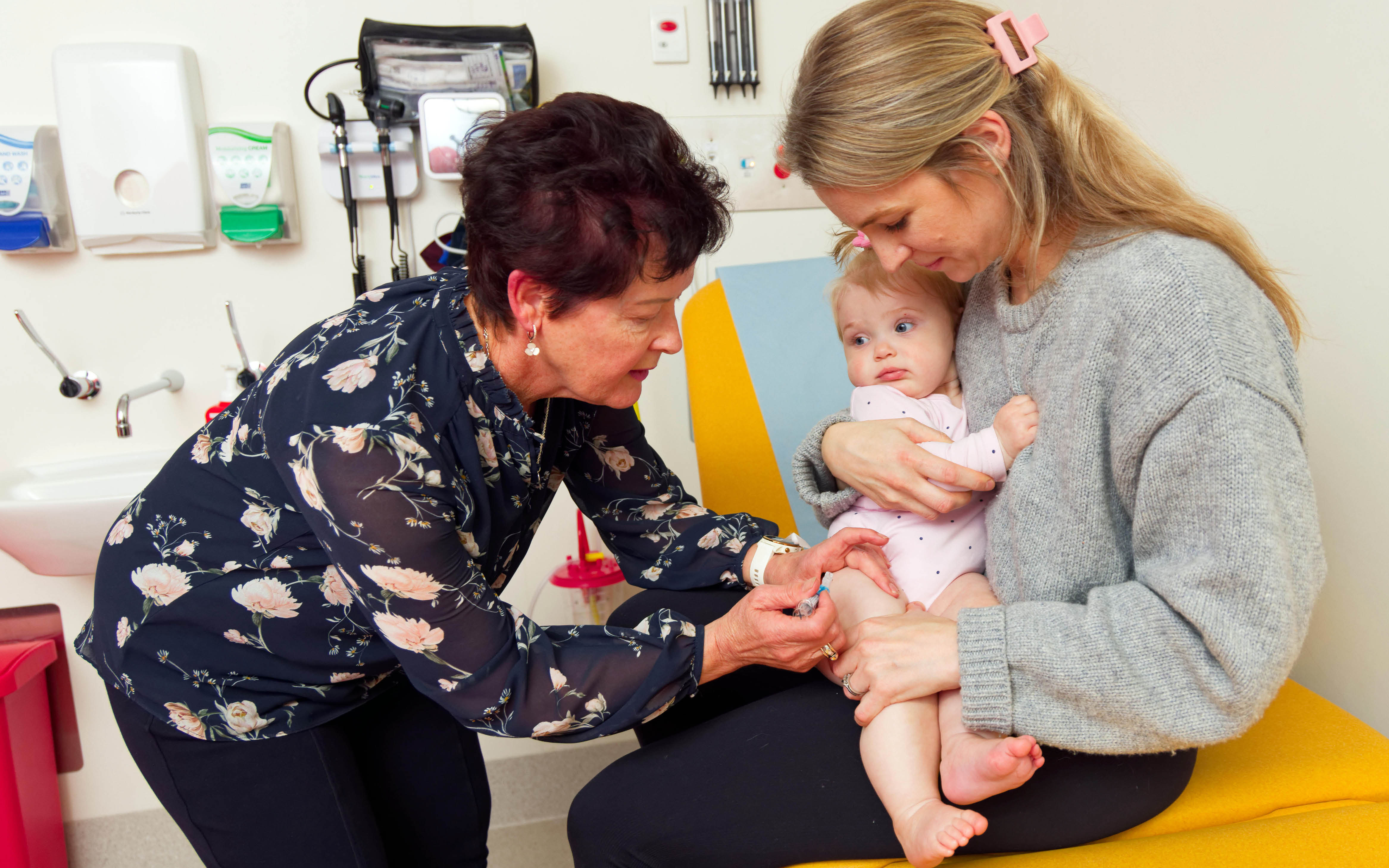Search
Research
COVALIA (COVid vaccine trial for austrALIA): A phase I, double-blind, dose-ranging, randomised, placebo-controlled trial to study the safety and immunogenicity of a DNA-based vaccine against COVID-19 (COVIGEN) in healthy participants aged 18 to 75 years oPeter Richmond MBBS MRCP(UK) FRACP Head, Vaccine Trials Group Head, Vaccine Trials Group Professor Peter Richmond is Head of the Vaccine Trials Group
Research
Potential impact of a maternal vaccine for RSV: A mathematical modelling studyRespiratory syncytial virus is a major cause of respiratory morbidity and one of the main causes of hospitalisation in young children.
Research
Replication and Excretion of the Live Attenuated Tetravalent Dengue Vaccine CYD-TDV in a Flavivirus-Naive Adult Population: Assessment of Vaccine Viremia and Virus SheddingWe assessed replication and excretion of the live attenuated CYD-TDV into biological fluids following vaccination in dengue-naive adults in Australia.
Research
The impact of obesity on influenza Vaccine immunogenicity - A systematic reviewInfluenza vaccines are important for reducing the burden of influenza, particularly for populations at risk of more severe infections. Obesity is associated with increased influenza severity and therefore individuals with obesity are often specifically recommended for annual influenza vaccination. Obesity is also associated with an altered inflammatory profile, which may influence vaccine responses. This systematic review aimed to evaluate the evidence for any association between obesity and influenza vaccine immunogenicity.
Research
Characterising the SARS-CoV-2 nucleocapsid (N) protein antibody responseSARS-CoV-2 nucleocapsid (N) protein antibodies can be used to identify the serological response to natural infection in those who have previously received a COVID-19 spike-based vaccine. Anti-N antibody responses can also be induced by inactivated whole SARS-CoV-2 virus vaccines, such as CoronaVac. We aimed to characterise antibody responses to the N protein following COVID-19 and following vaccination with CoronaVac.
Research
The Impact of Obesity on Influenza Vaccine Immunogenicity and Antibody Transfer to the Infant During PregnancyInfluenza vaccination is recommended for pregnant women, offering the dual benefit of protecting pregnant women and their newborn infants against influenza. This study aimed to investigate the impact of body mass index (BMI) on influenza vaccine responses in pregnant women and their newborns.
Research
A hospital-based asynchronous ENT telehealth service for children with otitis media: Cost-minimisation and improved accessThe purpose of this study is to explore the effectiveness of a hospital-based asynchronous ear, nose, and throat telehealth service (the Ear Portal) in reducing cost and improving access for children with otitis media.
Research
Association between pertussis vaccination in infancy and childhood asthma: A population-based record linkage cohort studyAsthma is among the commonest noncommunicable diseases of childhood and often occurs with other atopic comorbidities. A previous case-control study found evidence that compared to children who received acellular pertussis (aP) vaccines in early infancy, children who received one or more doses of whole-cell pertussis (wP) vaccine had lower risk of developing IgE-mediated food allergy. We hypothesized that wP vaccination in early infancy might protect against atopic asthma in childhood.

The mission of the Vaccine Trials Group is to improve the health of the community through immunisation and the prevention of infectious diseases.
Research
Plasma secretory phospholipase A2 as an early marker for late-onset sepsis in preterm infants—a pilot studyPreterm infants are particularly susceptible to bacterial late-onset sepsis (LOS). Diagnosis by blood culture and inflammatory markers have sub-optimal sensitivity and specificity and prolonged reporting times. There is an urgent need for more rapid, accurate adjunctive diagnostics in LOS to improve management and minimise antibiotic exposure.
